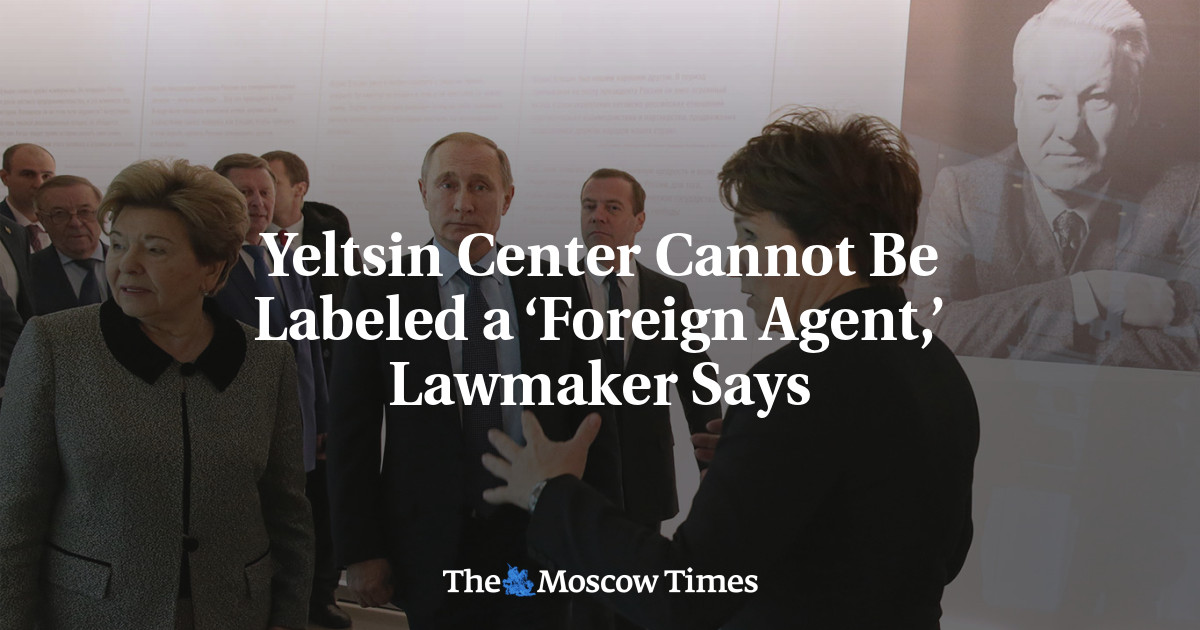
Russia’s Justice Ministry lacks the legal authority to label the Yeltsin Center as a “foreign agent,” a lower-house lawmaker said Monday.
Last week a senior Justice Ministry official said a preliminary investigation had been launched into the Yeltsin Center, a history museum and cultural center dedicated to the first Russian president Boris Yeltsin.
According to State Duma deputy Andrei Alshevskikh, the Yeltsin Center is shielded from being labeled a “foreign agent” by Russia’s law on historical heritage centers of former Russian presidents.
“In the current situation, I see only one way out — to amend the FL [federal law] and deprive the Yeltsin Center of these privileges,” Alshevskikh wrote on his Telegram channel.
“And only after that… will the authorities be able to conduct a full audit of the organization with all the resulting consequences,” adding that he would “discuss this initiative” with his colleagues.
Alshevskikh is a member of the ruling, pro-Kremlin United Russia party and represents the Sverdlovsk region — where the Yeltsin Center is located — in the State Duma.
Founded by the Boris Yeltsin Presidential Center nonprofit in Russia’s fourth-largest city of Yekaterinburg in 2015, the Yeltsin Center is billed as the country’s only museum celebrating democracy and the freedoms of the 1990s.
It regularly hosts lectures, concerts, exhibitions and other events.
The probe into designating the center a “foreign agent” is the latest in Russia’s widening clampdown on the opposition, independent media, pro-democracy groups and anti-war voices seen since the February 2022 invasion of Ukraine.
Just one day after Russia sent troops into Ukraine, the Yeltsin Center released a statement calling for the military offensive to end immediately.
Less than two months later, law enforcement officials forced the center to take down the anti-war statement.
When asked in June 2022 if the center should be declared a “foreign agent,” Kremlin spokesman Dmitry Peskov said that the Yeltsin Center has “indeed sparked broad debates and discussions within the public.”
Russia has labeled over 500 individuals and organizations — including many opposition groups and activists as well as independent media outlets and journalists — as “foreign agents” since the law was first passed in 2012.
The label, a stigmatizing term that carries negative connotations from the Cold War era, may be applied to any individual or group that receives funding from abroad or is deemed to have come under “foreign influence.”
Labeled individuals and organizations are subject to rigorous financial reporting requirements and must attach a wordy disclaimer to all materials they publish, including social media posts.